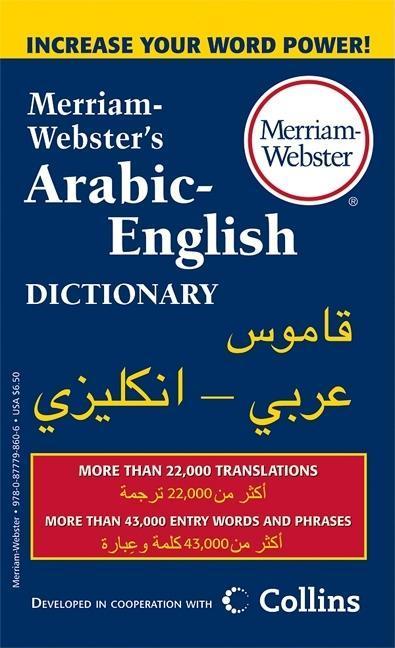Merriam- Webster’s Arabic- English Dictionary by Unknown author

Enhance your ability to effectively communicate in Arabic and American English with this comprehensive bilingual dictionary. Whether you are a teacher, traveler, or language learner, this bidirectional translation tool is an invaluable resource.
Featuring up-to-date coverage of essential vocabulary, this dictionary offers over 43,000 entry words and phrases, along with more than 22,000 translations. Its clear and precise definitions ensure that you have access to the words you need.
In addition to the comprehensive vocabulary, this dictionary also provides IPA pronunciations, allowing you to correctly pronounce words. Abundant examples of words used in context further assist in understanding correct usage.
Special sections within the dictionary include English Irregular Verbs, English pronunciation symbols, and the Arabic alphabet. These supplementary resources come in handy when navigating the intricacies of the English language.
Developed in collaboration with Collins; (c) HarperCollins Publishers Ltd 2010.
Adding Words to the Dictionary: Criteria, Sources, and Definitions
In order for a word to enter the dictionary, it must meet three criteria, as explained by Corey Stamper, a lexicographer at Merriam-Webster. The first criterion is widespread use, meaning the word must be used in various contexts and locations. Whether it appears in the Wall Street Journal or Vibe magazine, or is used in California and the Midwest, its usage should be widespread. The second criterion is sustained use, which means the word should have a long enough lifespan to prove it is not just a passing fad. Interestingly, once a word enters the dictionary, people tend to use it more frequently. Finally, the word must have meaningful use. Although all words have some meaning, there are cases where certain words are only used as examples of long or nonsensical words without any actual lexical meaning. These words cannot be defined in the dictionary.
Lexicographers rely on reading as a means of discovering new words. They read extensively from a variety of sources such as printed materials like magazines, newspapers, books, trade journals, and even packaging labels on items like fiber boxes, frozen food cartons, and beer bottles. The goal is to use sources that are written, published, and professionally edited. In the Internet age, major online sources are also considered valuable resources. When reading, lex







Leave a Reply